Mike Flanagan's Fall Of The House Of Usher Isn't Just A Great Netflix Show, But Possibly My New Favorite Horror Series
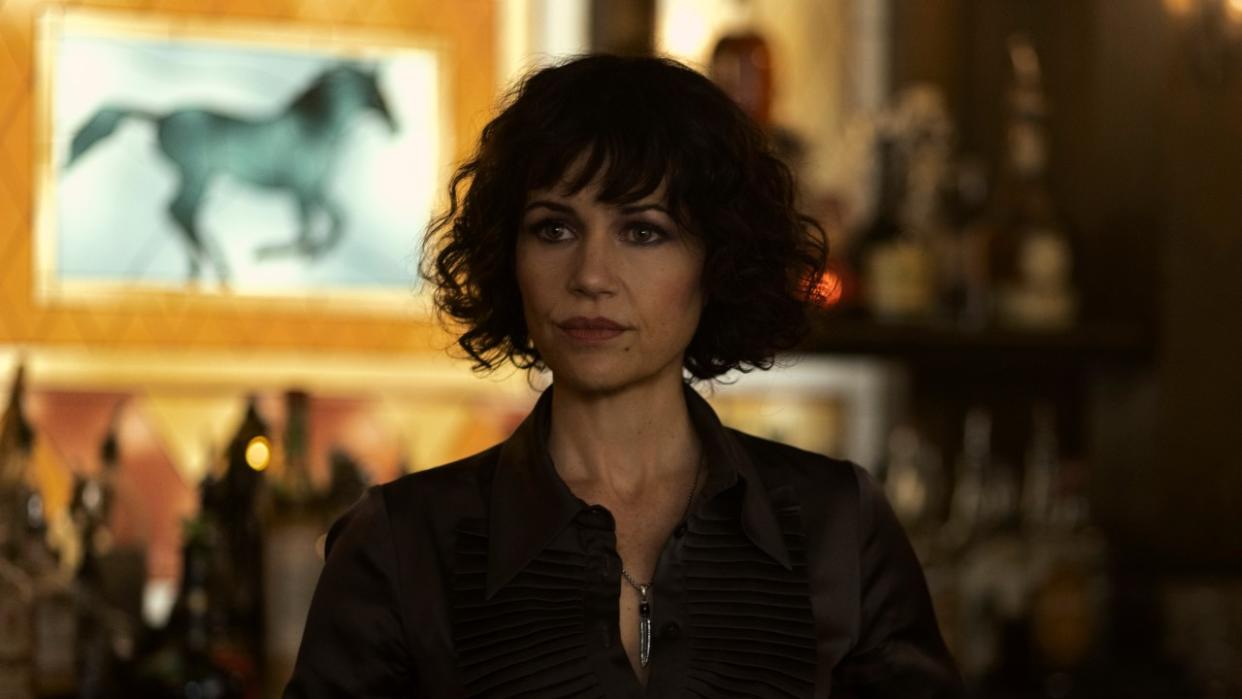
Let me get something out of the way immediately: I am as big a Mike Flanagan fan-agan as there can be. His entire career has earned as much appreciation as I have for the horror genre, from Haunting of Hill House to Oculus to Midnight Mass and all the other films and series that fill the space around those upper-echelon releases. To say I was excited for Falagan’s latest spooky Netflix series, Fall of the House of Usher, is to say my lungs are eager to breathe, as much about necessity as enjoyment, and I am oh-so-bugnuts-happy to say that Flanagan & Co. pulled off what currently sits as my new favorite horror TV show of all time. This. Is. My. Shit. Forevermore.
Without delving into anything spoilery, since this show is definitely best viewed knowing as little as possible — though watching House of Usher’s fantastic first trailer is certainly okay — let’s pinpoint some of the reasons why the Edgar Allen Poe-sourced series is so damned good on every single level.
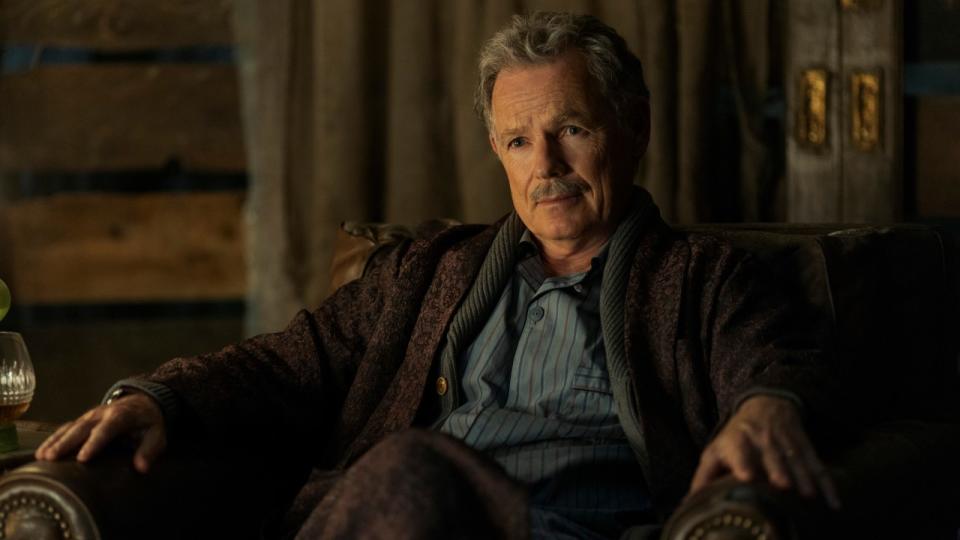
Everything Mike Flanagan Excels At Is Embedded In This Show
Regardless of one’s sum-total appreciation for Mike Flanagan’s body of work, it’s nearly impossible to deny at least some of his talents as a filmmaker and storyteller. By and large, The Fall of the House of Usher is a smoothed-out greatest hits collection of the standout qualities that shine through in his movies and series. (I’m admittedly using Flanagan’s name as a shorthand for the many, many other smart and skilled creatives who have helped bring these projects to life, but everyone is appreciated.)
Like The Haunting of Bly Manor and The Midnight Club, among others, the new series hinges on a character sharing a long and winding tale that takes his listener and viewers through the tumultuous history of the infamous Usher family and all of its darkest corners. And it’s a treat to bounce between flashbacks edited and designed to provoke the least amount of confusion for audiences. And like everything else that Flanagan has directed, this show is chock-full of mysteries and twists, though with more than enough clues embedded into episodes for fans to figure things out. (Which means no worries about totally nonsensical reveals at any point.)
House of Usher is also filled to the brim with dread-induced pacing, juxtapositions between slow camera pans and sudden frights, freaky AF background details, and all the visual motifs and flairs that have made Hill House, Oculus and others so optimal for rewatching. Plus, there’s that whole “adaptation of a horror legend’s classics” element that he also does so well. Speaking of…
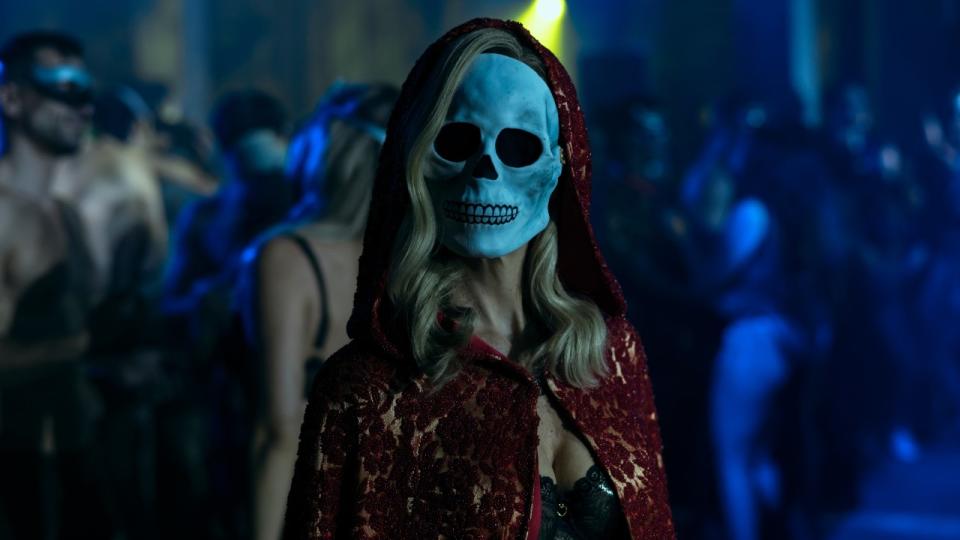
Edgar Allen Poe’s Work Is Adapted In Brilliantly Contemporary Ways
Prior to The Fall of the House of Usher, Flanagan has delivered projects based on novels, novellas, and short stories from Stephen King (Doctor Sleep, Gerald’s Game), Shirley Jackson (Hill House), Henry James (Bly Manor) and Christopher Pike (The Midnight Club). And though some very obvious changes were made to the material for each of those, I do believe his final Netflix series is where the biggest narrative leaps were made in the adaptation process. But that’s far from a complaint.
Rather than taking an anthological approach to blending Poe’s works into a wraparound narrative, the creative team crafted a wholly original modern-day storyline as a prism for all of Poe’s most celebrated efforts to flow through. In this tale, Roderick Usher is the CEO of a notorious pharmaceutical company in the midst of a huge trial, with twin sibling Madeline Usher as a devil on his shoulder, as their lives are rocked by the sudden and shocking deaths of the various Usher children.
But as the episode titles heavily imply, the various stories, characters, and plotlines from Poe’s most recognized works are woven into Flanagan’s universe in interesting ways that also seemingly reference elements of Poe’s own life. The Big Pharma element is obviously something that would not have been a direct throughline in the author’s works, and seems primed for comparisons to other med-related dramas such as Painkiller and Dopesick, but that modern-day crisis feels surprisingly right at home amidst all the narrative tweaks.
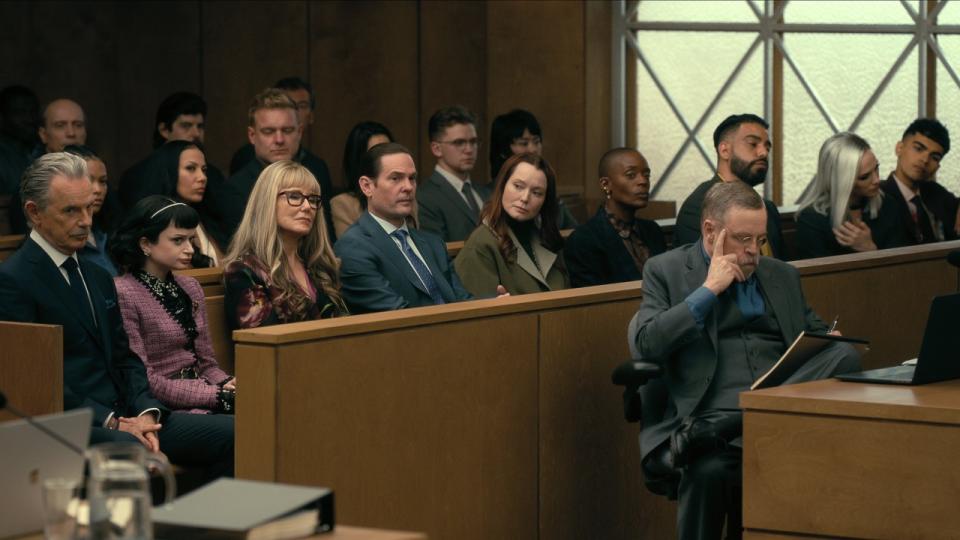
Bruce Greenwood And Mary McDonnell Are Incredible Anchors For This All-Star Cast
During its production, the biggest news story to come out of The Fall of the House of Usher centered on ousted actor Frank Langella, who was fired from the series over allegations of his on-set behavior. Soon after, Doctor Sleep and Gerald’s Game vet Bruce Greenwood was brought in as a replacement, and to say nothing of Langella’s acting abilities, I don’t think he’ll be sorely missed by anyone. Because Greenwood delivers what could be a career-best performance, with Midnight Mass star Zach Gilford portraying the younger Roderick, and they’re just two gems among many in this stacked cast.
The two actors who stand/sit opposite Greenwood for the majority of the show’s run are Mary McDonnell as Madeline (with Willa Fitzgerald in flashbacks) and Carl Lumbly as investigator C. Auguste Dupin (with Malcolm Goodwin as the younger counterpart). Serving as the closest thing to an audience surrogate as this show allows, Lumbly delivers a performance that’s both stoic and vulnerable as Dupin attempts to finally bring his white-collar whale to justice.
Though there isn’t enough room to justifiably sing the praises of everyone in the House of Usher cast, the show makes full use of its talented ensemble, which includes Flanagan favorites such as Carla Gugino, Kate Siegel, Henry Thomas, Samantha Sloyan, T’Nia Miller, Rahul Kohli, Matt Biedel, Michael Trucco, Ruth Codd, Annabeth Gish, Robert Longstreet, Crystal Balint, Kyliegh Curran and others. Not to mention new recruit Mark Hamill, but more on him in a sec.
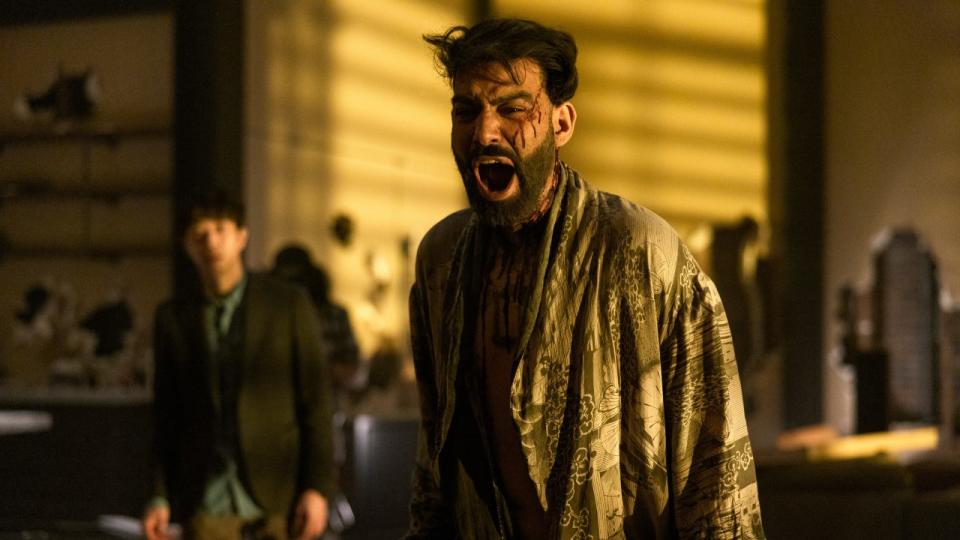
The Horror Rings Deeply Emotional, And Features Some Truly Nightmarish Visuals
To speak too directly to the horror on display throughout The Fall of the House of Usher is to wade into spoiler territory, but suffice to say the opening act of the show teases out the string of events that will be focused on throughout the eight-episode season, and in ways that don’t fully invoke the terrifying events on the way. But buddy, when they do arrive, make sure your floor is freshly cleaned, so that your jaw doesn’t get dirty every time it drops down.
In many ways, The Fall of the House of Usher feels as if it should have been under the Haunting banner, even though it does stand apart enough. But if you’re as big a fan of such creepy figures as the Bent Neck Lady and the Tall Man, the supernatural intensity of Ouija: Origin of Evil, and the dark and gory splatter of Midnight Mass, Midnight Club and Oculus, I feel comfortable saying there’s something in House of Usher that equals or tops any of those moments in past projects.
There’s this one scene that just… I mean… You’ll know it when you get to it, and you’ll wish you’d covered your eyes and ears ahead of time, while being agog all the same. It’s the best!
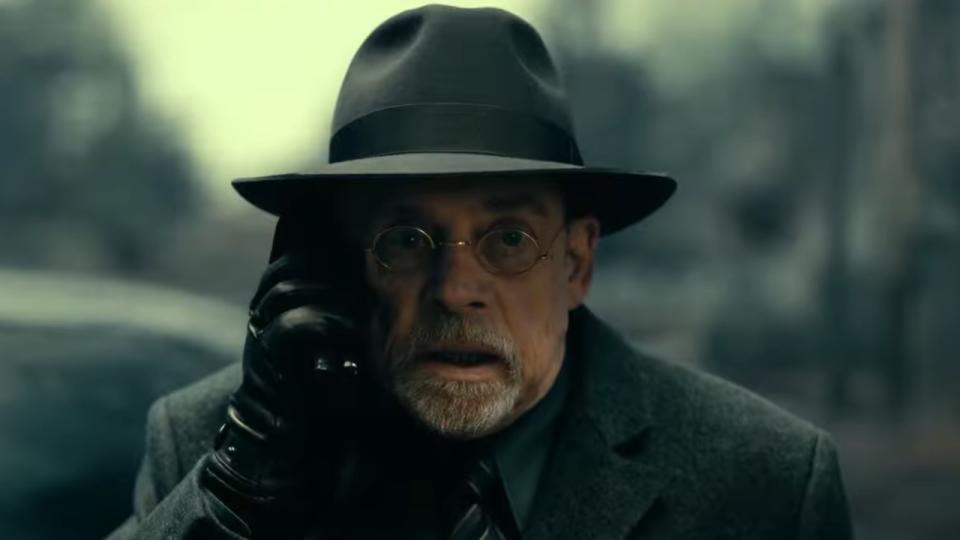
Non-Guiltiest Pleasure: Mark Hamill’s Old Man Joker Voice
Okay, so this probably doesn’t play heavily into my opinion that The Fall of the House of Usher is the best horror TV show of all time, but it certainly doesn’t hurt. As the Usher family’s prim-faced lawyer Arthur Pym, Mark Hamill is quite subdued in the role, playing things in a way where even though not much is happening, it’s clear there are myriad hamster wheels spinning out inside his brain. And it’s one of the relatively rare times fans get to see the actor in live-action relying on the gruff-throated voice that helped make his version of The Joker a fan-favorite, despite being an animated character.
Though Arthur’s voice doesn’t get to match the manic highs or the disgruntled lows of the Clown Prince of Crime, Hamill’s voice still hits enough of the same vocal territory to keep the villain in mind, which was suitable enough, considering Bruce Greenwood has voiced Bruce Wayne and Batman across several different animated projects himself. None of that has anything to do with Edgar Allen Poe, of course, unless we’re talking about Teen Titans member Raven, of course… But we’re not.
Get ready for the most magical time of year — Halloween, obviously — when The Fall of the House of Usher debuts on Netflix on Thursday, October 12. While waiting, check out all the upcoming horror movies that will also make this year’s spooky season all the more gleefully harrowing.
